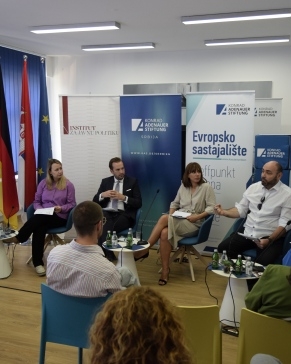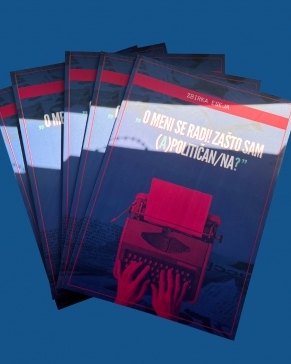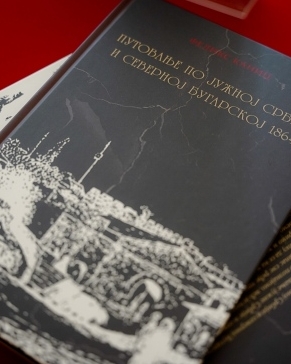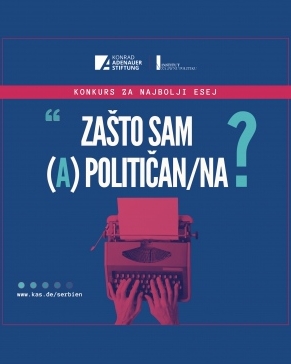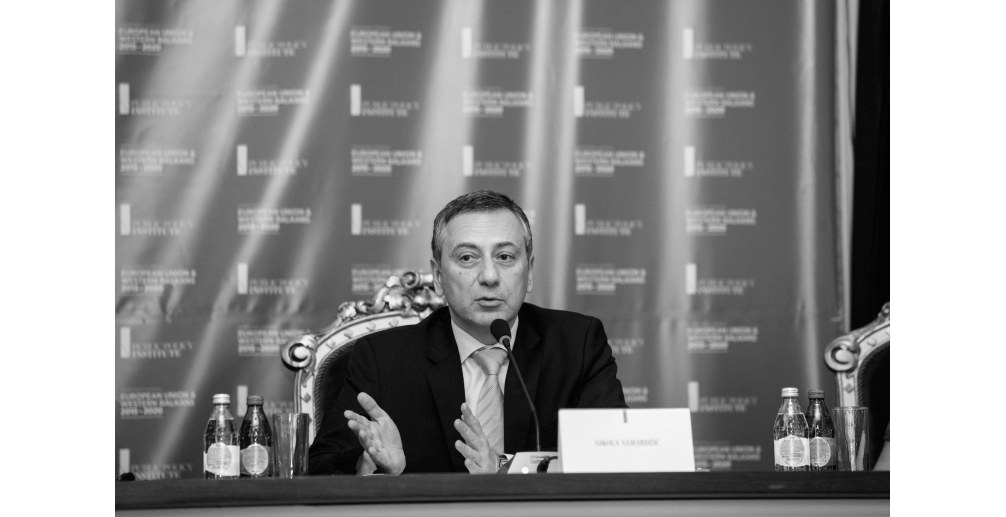
Personal view: The war that started from headquarters, barracks and central committees had ended on its beginning point.
Long time ago, Alisa Stojanović had suggested that we should erase March from political calendar. So many woes and miseries fall upon us in a month that should associate us on awakening and springtime. The only thing that is more teriffying than its message is its precision and long duration. The inability to rationalize the past has become the inability to rationalize the future. Our political March begins with the anniversary of Milošević’s death. His “normalization” which ranks him among great actors of world politics is not coincidental. Our political March ends, in a similar way, with glorification of NATO intervention, which, followed by demonization of the West, still remains the most convincing message that Serbia must continue on the route of isolation and barbarization.
Our Fatherland, that we had loved, was not only the murdered, mutilated people and those who lost their minds, nor only destroyed Central Committee building and bridges of Novi Sad. Our Fatherland was also Slovenia that was criss-crossed with tanks, shelled-out Dubrovnik, burned-down Vukovar, Mostar, Sarajevo, Đakovica and Prizren. Do we still have the right to consider our Fatherland as complete, indivisible and our own? And how will it again eventually become our own, without becoming prey to deranged gangs, like those that butcher Ukraine, along the lines of log roadblocks and autonomous local communities, while we, allegedly, support Ukraine’s sovereignty and territorial integrity?
The war that started from headquarters, barracks and central committees had ended on its beginning point. Media that support Putin’s aggression on Ukraine, which was announced by Milošević’s aggression on Slovenia and Croatia, remind us on horrifying memories of March of 1999, but that media remain silent about mass graves, reefer trucks and, above all, that living, creeping fear, poison and hatred of those who, by erasing their own memory, hope to erase the collective memory as well.
Are our traumas, after 16 years, greater then those of Vukovar in 2007, or Sarajevo in 2011? Is our role model self-isolated, poor and traumatized society of Kosovo? Is Kosovo’s society our reflection in distorted mirror, in perception which supresses values of flow of time and future as the only meaning of existence, unless it not devoid of memory? Is some future violence, relying on awakened Russia, the only way of realizing national unity? And what are the borders of space we think of as some future Fatherland? And why are we waiting for Brussel’s discovery of a formula for space which, comprising nations of the same or similar language, was integrated a century ago, while the great European empires disintegrated?
Some remains of Yugoslav People’s Army are still undefeated, and are in a state of special war, which was once defined by doctrine of Total People's Defense. That war is being led for the last 16 years against also undefeated but scattered remains of political forces dedicated to reintegration, reconciliation, detraumatization and rational deliberation of past and future. YPA, intellectuals, football hooligans, tycoons, priests and cyber rejects (those who fail to pass actual physical recrutation) – that front still controls the majority of media, state and clerical institutions, professional sport, various associations, federations, right up to tenant councils or fishing clubs.
Every day a new affair emerges, modelled along the lines of old defamatory article “Vojko i Savle”, aimed against those persons and forces, among government and political society, that are dedicated to integration with neighbours and European institutions. That process implies approach to NATO. Germany and France, after almost three centuries of wars and confrontations, haven’t waited for 16 years in order to integrate after 1945. West Germany, which was overrun and burned down by both eastern and western Allies, including brutal mass reprisals, was admitted in NATO in 1955. And the time today is, both realistically and in its perception, faster than that of a half century ago. Only the foreign and own experiences are equally far away.

